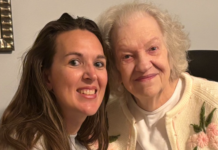Branding Diseases—How Drug Companies Market Psychiatric Conditions: An Interview with Ray Moynihan
MIA’s Ayurdhi Dhar interviews Ray Moynihan about the marketing of disorders, broadening of diagnoses, and harmful treatments.
Addressing the Roots of Racial Trauma: An Interview with Psychologist Lillian Comas-Díaz
MIA’s Hannah Emerson interviews Comas-Díaz on the need for culturally competent care in a medicalized and individualistic society.
Fascist Subjectivity and the Subhuman: An Interview with Critical Psychologist Thomas Teo
MIA's Tim Beck interviews critical psychologist Thomas Teo on how theory and research can do justice to the people it means to describe and explain.
The Making of a ‘Madness’ That Hides Our Monsters: An Interview with Audrey Clare...
In this interview, Audrey Clare Farley reveals how our understanding of schizophrenia was built to avoid acknowledging sexual trauma, religious abuse, and racism.
Breaking Academia’s Silence on Inpatient Psychiatry: An Interview with Researcher Morgan Shields
Morgan Shields discussed her experiences in inpatient psychiatry and her efforts to bring patient-centered care to this oft-neglected field.
Psych Concepts Creep Into Our Everyday Experiences: An Interview with Nicholas Haslam
MIA’s Ayurdhi Dhar interviews Nicholas Haslam about how psychiatric terms get diluted and creep into everyday language, altering our experiences.
Challenging Western-Centric Child Psychology: An Interview with Nandita Chaudhary
Ayurdhi Dhar interviews Nandita Chaudhary about children’s lives across cultures, the problems with global aid agencies and their interventions, psychology’s bias in the study of children, the limits of attachment theory and more.
Deprescribing Psychiatric Drugs to Reduce Harms and Empower Patients: Interview with Psychiatrist Swapnil Gupta
Ayurdhi Dhar interviews psychiatrist Swapnil Gupta on psychiatric drug discontinuation, drug cocktail risks, patient choice, and the need for trust and transparency.
Undisclosed Financial Conflicts of Interest in the DSM-5: An Interview with Lisa Cosgrove and...
On the Mad in America podcast we talk with Lisa Cosgrove and Brian Piper about their BMJ paper entitled "Undisclosed Financial Conflicts of Interest in the DSM-5 TR: Cross-Sectional Analysis"
Multiplicity and Mad Studies: An Interview with Jazmine Russell
In this interview, Jazmine Russell describes her journey through psychosis and mental health advocacy to embracing a multiplicity of frameworks in Mad Studies.
Combatting Structural Racism and Classism in Psychiatry: An Interview with Helena Hansen
MIA interviews psychiatrist and anthropologist Helena Hansen about bringing structural competency to psychiatry while rebuilding communities.
Bridging Critical and Conceptual Psychiatry: An Interview with Awais Aftab
MIA’s Justin Karter interviews psychiatrist Awais Aftab about how “conceptual competence” uses philosophy to transform psychiatry.
The Failings of “Mental Health”: How a Seemingly Benign Concept Might be Dangerous
MIA’s Ayurdhi Dhar interviews Bruce Cohen about dismissive psychiatrists, pervasive psychiatry, and the field's ties to neoliberal capitalism.
When Psychology Speaks for You, Without You: Sunil Bhatia on Decolonizing Psychology
MIA’s Ayurdhi Dhar interviews Sunil Bhatia about decolonizing psychology, confronting the field’s racist past, colonial foundations, and neoliberal present.
Rethinking Suicide Prevention: An Interview on Critical Suicide Studies with Jennifer White
MIA’s Samantha Lilly interviews critical youth suicidologist Jennifer White about what suicide prevention could look like outside of the medical model.
The Psychological Humanities Manifesto: An Interview with Mark Freeman
Justin Karter interviews narrative and philosophical psychologist Mark Freeman about his vision for the future of psychology.
Psychiatry’s Cycle of Ignorance and Reinvention: An Interview with Owen Whooley
Ayurdhi Dhar interviews sociologist Owen Whooley about psychiatry's stubborn perseverance in the face of recent DSM embarrassments and the failures of the biomedical model.
Live and Learn: An Interview with Laysha Ostrow
MIA’s Peter Simons interviews Laysha Ostrow about her mental health research and consulting company, the inclusion of peer specialists in mental health care, and her personal experience with the mental health system.
Bringing Integrative Community Therapy to Pittsburgh: An Interview with Alice and Kenneth Thompson
Father and daughter Ken and Alice Thompson run the Visible Hands Collaborative, bringing Integrative Community Therapy to the US.
The Creation of a Conceptual Alternative to the DSM: An Interview with Dr. Lucy...
MIA's Zenobia Morrill interviews Lucy Johnstone about the reaction to the Power Threat Meaning Framework, her life influences, and her hopes for the future.
Peer Support and Resistance: Becky Brasfield’s Vision for Mental Health Justice
In this interview with Ayurdhi Dhar, Becky Brasfield calls for radical truth-telling in the mental health system.
Opening Doors in the Borderlands: An Interview with Liberation Psychologist Mary Watkins
MIA’s Micah Ingle interviews Mary Watkins about reorienting psychology toward liberation and social justice.
Mad Science, Psychiatric Coercion and the Therapeutic State: An Interview with Dr. David Cohen
MIA's Peter Simons interviews David Cohen, PhD, on his path to researching mental health, coercive practices, and discontinuation from psychiatric drugs.
How Western Psychology Can Rip Indigenous Families Apart: An Interview with Elisa Lacerda-Vandenborn
An interview with Elisa Lacerda-Vandenborn about the consequences \psychology and mental health treatment can have for indigenous children.
Exploring the Fault Lines in Mental Health Discourse: An Interview with Psychologist Justin Karter
Justin Karter discusses his journey to Mad in America, competing models of mental health, and how we navigate these stories in psychotherapy.

































